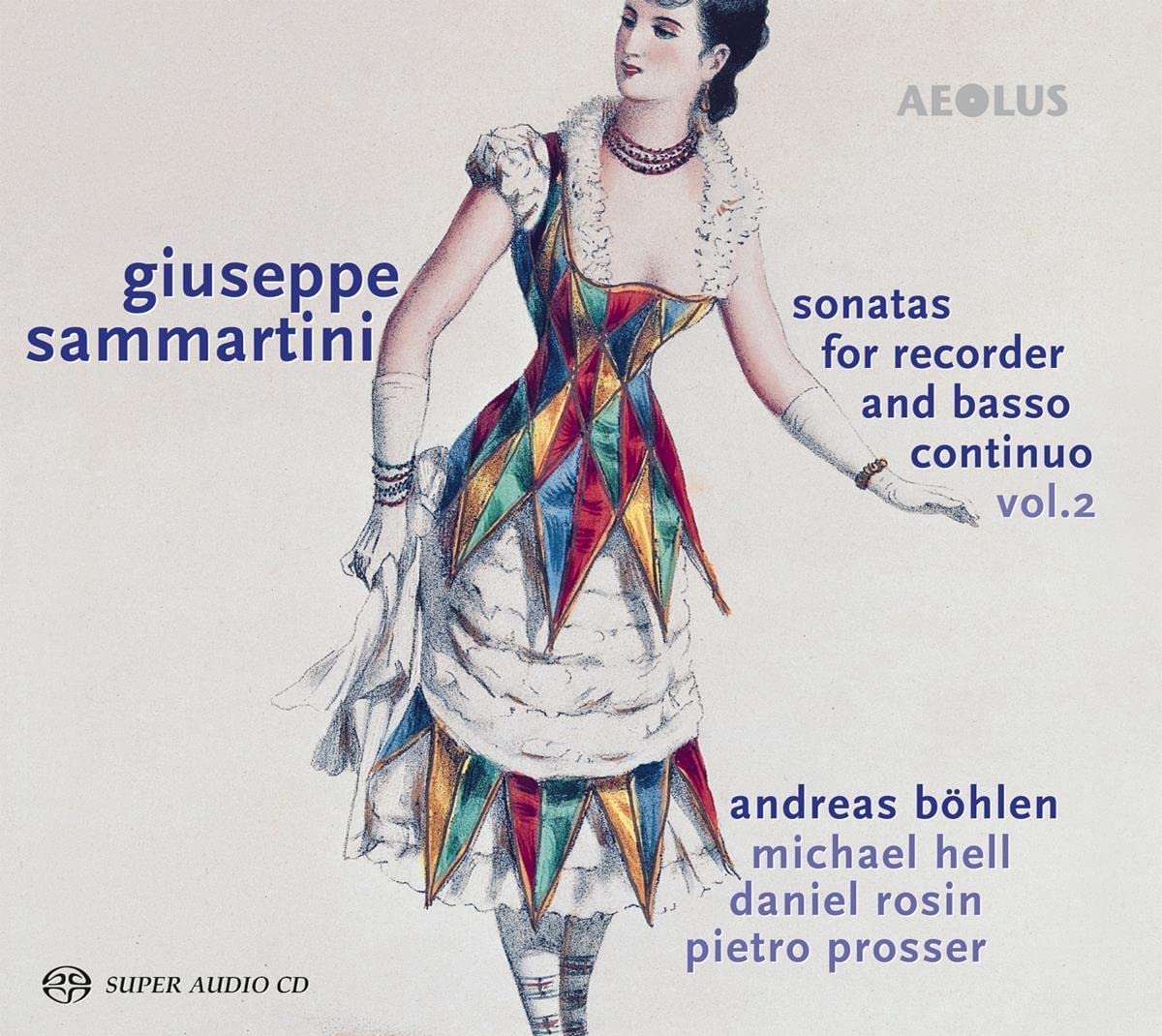Andreas Böhlen, Michael Hell, Daniel Rosin, Pietro Prosser
73:20
AEOLUS AE-10306
Click HERE to buy this recording on amazon.co.uk
[These sponsored links generate very little income, but they do keep this site FREE!]
Older brother of the better-known Giovanni Battista Sammartini, Giuseppe has come to be somewhat eclipsed from the days when his name was mentioned in the same breath as Corelli and Geminiani. After training in Milan with his oboist father, Giuseppe took the well-worn route to London where he advanced from jobbing musician to entering the employment of Frederick Prince of Wales. By the time of his death in 1750 at the age of 55, he was rated as ‘the finest performer on the hautboy in Europe’. His 32 surviving works for alto recorder suggest an intimate knowledge of this instrument too, and indeed it was common at the time for musicians to double on several woodwind instruments. While Sammartini’s sonatas may not have quite the technical demands of Vivaldi’s recorder writing, they are to my mind much more idiomatic, reflecting the lively professional and amateur interest in the instrument. Andreas Böhlen’s accounts are strikingly musical and deftly ornamented, while the rapid passage-work is stunningly well executed. He plays a set of four alto recorders in F modelled on originals by Steenbergen, Bressan and J Denner, as well as an instrument in G by J C Denner, each with a distinctive and engaging voice. His continuo ensemble of lute, harpsichord and cello is superbly supportive and responsive, and used in various permutations to imaginatively vary the textures. As an ensemble, they are clearly all immersed in the chamber music of this period, and their performances are wonderfully expressive and evocative, as is David Lasocki’s comprehensive and stylishly written programme note. I enjoyed enormously volume one of Sammartini’s Sonatas by these performers, and this second volume has more than lived up to its promise. We look forward to further volumes exploring the rest of this gifted composer’s output.
D. James Ross
